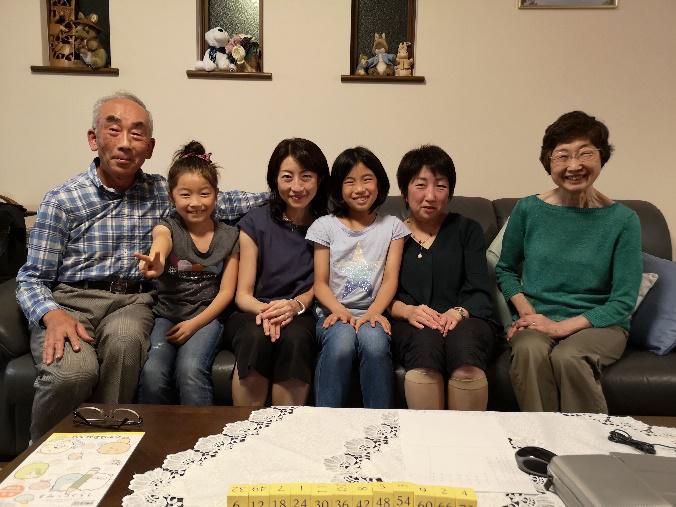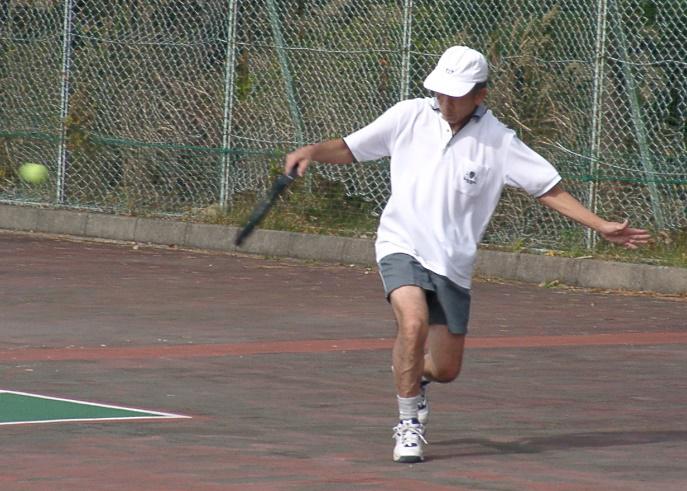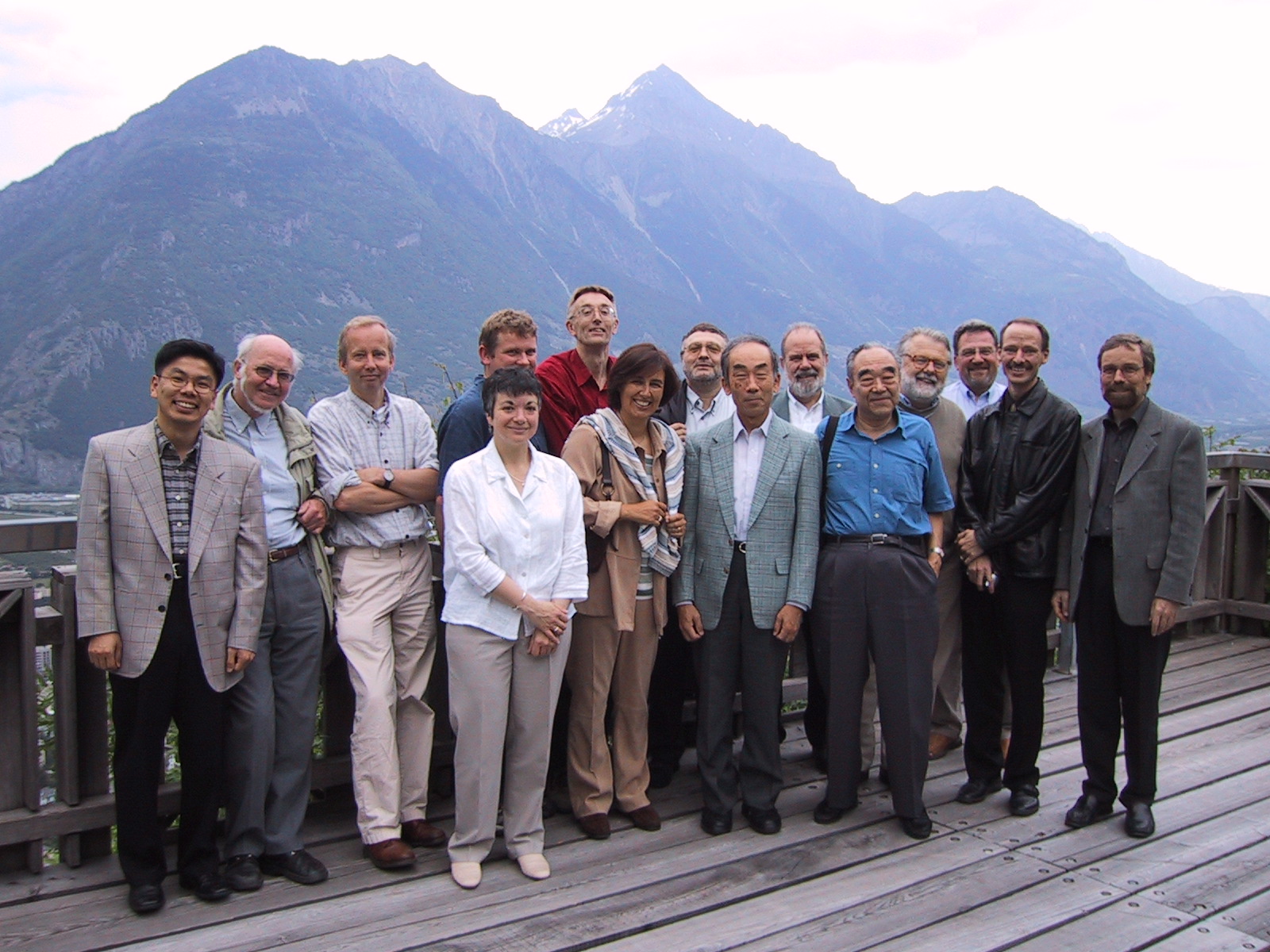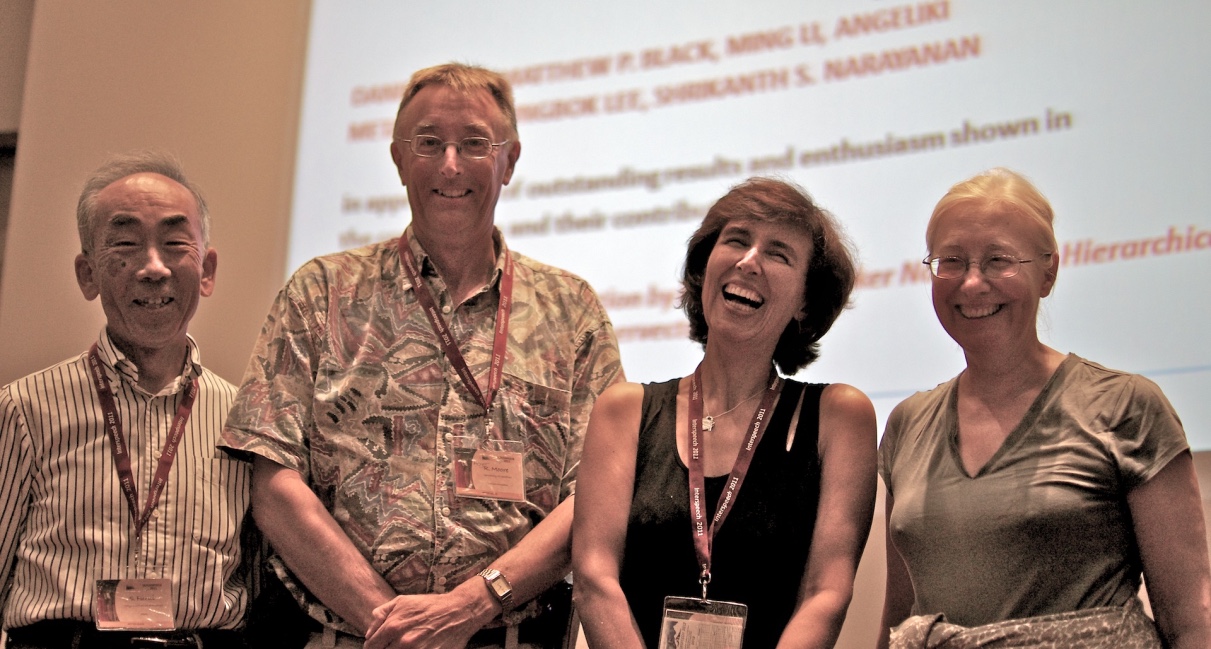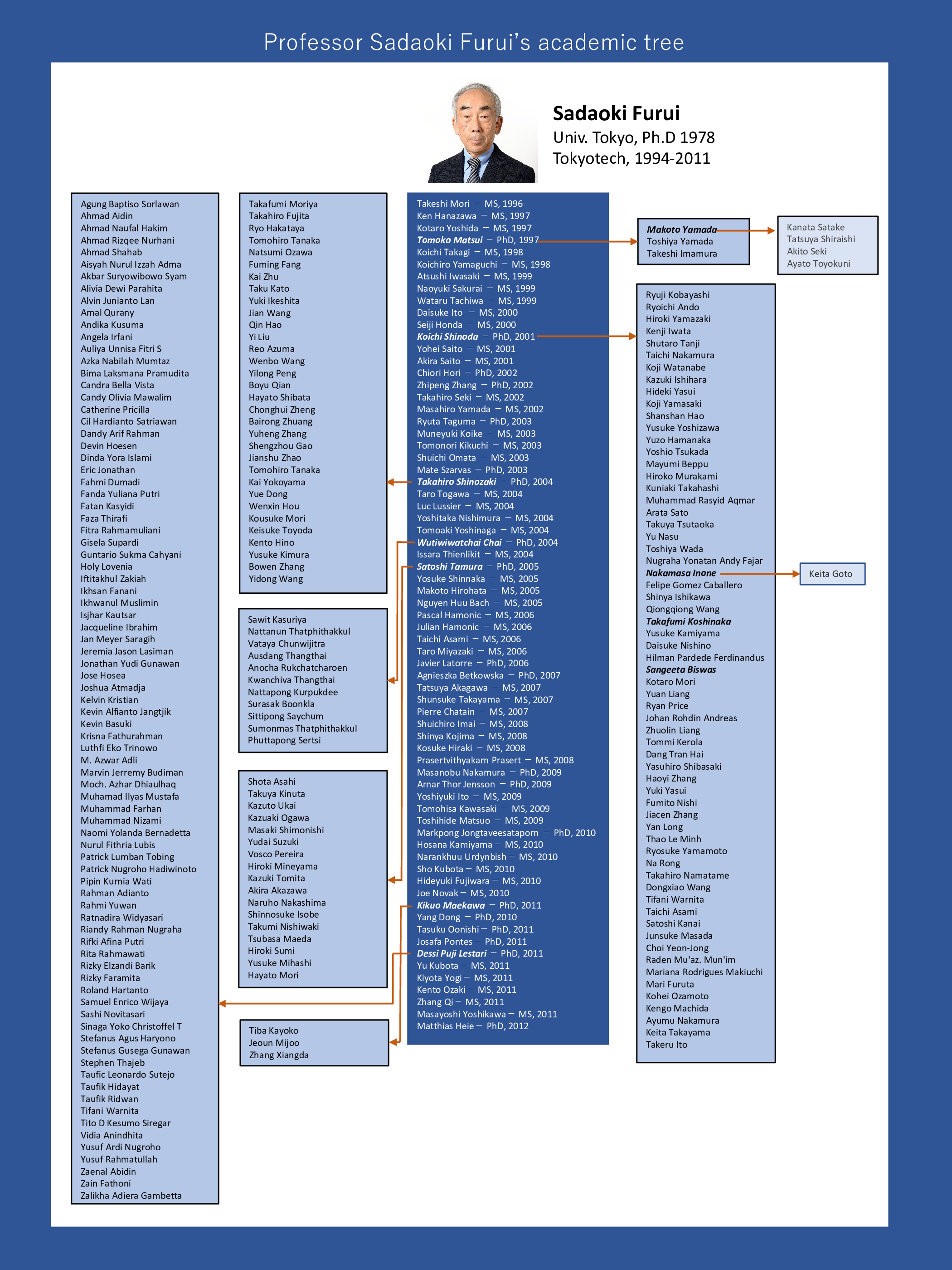 |
ISCApad #292 |
| Wednesday, October 05, 2022 by Chris Wellekens |
2 ISCA News
| 2-1 | Message from ISCA president Prof. Sebastian Möller
Dear friends of ISCA,
As I am writing these words, INTERSPEECH 2022 has just closed its doors. Considering that it was the first INTERSPEECH conference since the beginning of the pandemic with a substantial in-person presence, it is indeed an enormous success that the organizers attracted close to 1600 in-person participants, plus approx. 700 virtual participants, to our major community event. With a record number of submissions, it was also able to feature an excellent scientific program, compiled by the TPC Chairs Kyogu Lee, Lori Lamel, Mark Hasegawa-Johnson, Karen Livescu and Okim Kang, with the support of many Area Chairs and even more reviewers. To this already top-level program were added four keynotes – one by our ISCA medalist Lin-Shan Lee, six survey talks, eight tutorials, and 12 special sessions, as well as industry talks, satellite events and many student- and postdoc-organized events. On behalf of ISCA and the entire membership, I would like to thank our General Chair Hanseok Ko, as well as our General Co-Chair John H.L. Hansen, for their efforts in making this major event a great success!
The special setting of INTERSPEECH 2022 has highlighted significant challenges we as a scientific association are facing. One such challenge is the effort which organizers can put into hybrid set-ups. Audio-visual equipment enabling interactive participation for virtual participants has been found to be too costly to be established for all sessions. The ISCA Advisory Council has also stressed that the primary focus for INTERSPEECH organizers should be on in-person participation; thus, virtual participants will – for the time being – have to live with reduced interactive offers if we want to keep participation fees accessibly low. A second challenge is the large number of submissions (with 2140 papers undergoing review this year), and the resulting necessity for a substantial pool of qualified reviewers. We thus rely on all of your expertise to ensure the high quality of our scientific program, and encourage you to subscribe to our reviewer database at https://isca-speech.org/iscareviewers/reviewer.php (if you have not yet done so). A third challenge is the management of such a high number of papers and reviewers within a short period of time. We envisage a move to a different paper management system in the near future, in order to achieve the best-possible matches between papers and reviewers, as well as to take advantage of additional functionalities for the TPC and Area Chairs.
Lastly, I would like to remind you about the workshop that several past ISCA presidents will organize in honor of Sadaoki Furui, on November 29, 2022; see the ISCA front page for more details.
I wish you all a good read of this ISCApad, as usual excellently compiled by Chris Wellekens.
Sebastian Möller Meg Zellers ISCA president ISCA conferences
| |||||
| 2-2 | Professor Sadaoki Furui's obituary (1945-2022)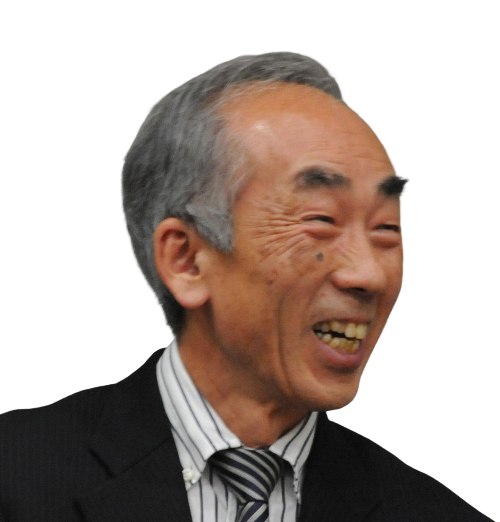 Sadaoki Furui (1945-2022)
ObituaryIt is with great sadness that we announce the passing of one of the great pioneers and creative geniuses of speech processing, Dr. Sadaoki Furui. Sadaoki was born in 1945 in Tokyo, and passed away on 31st July 2022 at the age of 76. He is survived by his wife Hikaru, to whom he was dearly dedicated for 51 years, and by his loving daughters, Miyuki and Nozomi. Sadaoki earned the B.S., M.S., and Ph.D. degrees in Mathematical Engineering and Instrumentation Physics from the University of Tokyo in 1968, 1970, and 1978 respectively.
After joining the Nippon Telegraph and Telephone Corporation (NTT) Labs in 1970, Sadaoki worked on speech analysis, speech recognition, speaker recognition, speech synthesis, speech perception, and multimodal human-computer interaction. From 1978 to 1979, he was a Visiting Researcher at AT&T Bell Laboratories, Murray Hill, New Jersey. He was a Research Fellow and the Director of the Furui Research Laboratory at NTT Labs, and a Professor at the Department of Computer Science, Tokyo Institute of Technology. He was President of the Toyota Technical Institute at Chicago from 2013 to 2019. Most recently, he was Chief Research Director at the National Institute of Informatics in Tokyo, and Professor Emeritus at the Tokyo Institute of Technology.
Sadaoki was a pioneer in the field of computer-based speech recognition, understanding, and speaker recognition. Many of his research results are truly original. His investigation into the human perception of transient sounds presented the first quantifiable measurement of the importance of spectral transition on the intelligibility of speech. His results also led to the innovative idea of computing spectral derivatives for use in speech and speaker recognition systems to improve recognition accuracy. Today, spectral derivatives, or the so-called ‘delta cepstrum’ parameters, are key components in the feature set that characterizes a speech pattern for automatic recognition by machine, and most contemporary practical speech and speaker recognition systems use delta cepstrum parameters. Likewise, the delta cepstrum also plays an important role in HMM (hidden Markov model)-based speech synthesis which has been actively investigated and used in many applications all over the world.
Sadaoki was one of the first researchers to investigate the recognition of spontaneous speech, and he led the project that collected the Corpus of Spontaneous Japanese (CSJ), the world's largest and most representative database of spontaneous speech. CSJ became a core resource for analyzing the nature of spontaneous speech and for developing a speech recognition methodology for “natural” speech. As a result, the recognition accuracy of spontaneous speech, which up to that time had proven extremely poor, was greatly improved.
Sadaoki was a researcher and educator: he published over 1000 scientific papers, six textbooks, one edited book, and two translated books. He has particularly contributed to the education of young researchers, and many have learned speech processing by reading his well-known textbook “Digital Speech Processing, Synthesis, and Recognition”. He has also served extensively as a lecturer in many organizations, for example as IEEE and ISCA Distinguished Lecturer. As president of Toyota Technological Institute of Chicago, he was responsible for educating talented researchers in the machine learning field including signal processing.
Sadaoki served as President of the International Speech Communication Association (ISCA) from 2001 to 2005, and actively promoted the collaboration between speech science and speech technology. He also served as President of the Acoustical Society of Japan from 2001 to 2003, and founded the Asia-Pacific Signal and Information Processing Association (APSIPA) to contribute to promoting signal and information processing research activities in the Asia-Pacific region, serving as its first president.
Sadaoki received many professional awards and honors including the Paper Award and the Achievement Award from the Institute of Electronics, Information, and Communication Engineers of Japan (IEICE) (1975, 1988, 1993, 2003, 2003, 2008), and the Paper Award from the Acoustical Society of Japan (ASJ) (1985, 1987). He received the Senior Award and Society Award from the IEEE Signal Processing Society (1989, 2006), the International Speech Communication Association (ISCA) Medal for Scientific Achievement (2009), and the IEEE James L. Flanagan Speech and Audio Processing Award (2010). He also received the Achievement Award from the Minister of Science and Technology and the Minister of Education, Japan (1989, 2006), and the Purple Ribbon Medal from the Japanese Emperor (2006). Additional awards and honors include Distinguished Lecturer (IEICE), 1993; Fellow (IEICE), 2001; the Distinguished Achievement Award (IEICE), 2008; Fellow (ISCA), 2008; Medal for Scientific Achievement (ISCA), 2009; NHK Broadcast Cultural Award, 2012; Distinguished Lecturer (ISCA), 2012; Okawa Prize, 2013; Accredited as Person of Cultural Merit by Japanese Government, 2016; Permanent Honorary President of APSIPA, 2020; and ISCA Special Service Medal, 2020. Koichi Shinoda
Sadaoki and his family |
 | Back | Top |
ELRA/ISCA Special Interest Group: Under-resourced Languages (SIGUL)
Created in April 2017, SIGUL is a joint Special Interest Group of the European Language Resources Association (ELRA) and of the International Speech Communication Association (ISCA). This year, SIGUL enters the fifth year and now has more than 300 members. The SIGUL Board is elected every two years, and last year SIGUL had a new Board officer:
Chair and ISCA liaison representative: Sakriani Sakti (JAIST, Japan)
Co-chair and ELRA liaison representative: Claudia Soria (CNR-ILC, Italy)
Secretary: Maite Melero (Barcelona Supercomputing Center, Spain)
SIGUL has organized various events, including the Spoken Language Technologies for Under-resourced languages (SLTU) Workshop Series, which has been organized since 2008, and Collaboration and Computing for Under-Resourced Languages (CCURL), which has been organized as LREC Workshop since 2014. From this year, the tradition of CCURL-SLTU will be united into one SIGUL Workshop and planned to be held as a Satellite Workshop of LREC or INTERSPEECH.
The 1st Annual Meeting of the ELRA/ISCA Special Interest Group on Under-Resourced Languages (SIGUL 2022) will be held as Satellite Workshop of LREC 2022, Marseille (FR), 24-25 June 2022.
The SIGUL venue will provide a forum for the presentation of cutting-edge research in NLP/SLP for under-resourced languages to both academic and industry researchers, and also offer a venue where researchers in different disciplines and from varied backgrounds can fruitfully explore new areas of intellectual and practical development while honoring their common interest of sustaining less-resourced languages.
Topics include but are not limited to:
-
general research on under-resourced languages.
-
transfer-learning techniques for under-resourced languages (zero-shot, few-shot training);
-
unsupervised and semi-supervised methods to build applications for under-resourced languages;
-
use of multilingual pre-trained language models to under-resourced languages;
-
speech technologies for under-resourced languages.
We also invite position papers on methodological, ethical, or institutional issues.
Important Dates:
-
Paper submission deadline: 11 April 2022
-
Notification of acceptance: 3 May 2022
-
Camera-ready paper: 23 May 2022
-
Workshop date: 24-25 June 2022
More details can be found on the workshop web page: https://sigul-2022.ilc.cnr.it/
SIGUL Board
Sakriani Sakti
Claudia Soria
Maite Melero
 | Back | Top |
ISCA supports speech communication research activities in various languages. The individual languages have equal interest, but they may involve have different technical or scientific problems. For example, some languages are tonal, while others are not; Some languages have only one writing system, while others have several. In the ISCA community, we have 6 language Special Interest Groups (SIGs) for Chinese, French, Italian, Iberian, Indian, and Russian. Each SIG is organised by researchers who speak the language of interest as L1 and others who have a technical or scientific interest in the language. Each SIG sponsors domestic and international research activities, and representative members of the SIGs attend a Lang SIG meeting every year during the INTERSPEECH conference. In this meeting, recent activities of each SIG are reported, and new ideas are exchanged. We also review what ISCA can do for the SIGs and what the SIGs can do for ISCA. Each SIG has its own web page, and you can visit the pages here.
https://www.isca-speech.org/iscaweb/index.php/sigs
Do you want to start a new language SIG? If so, please visit the page above and check what you have to prepare for your SIG. Although it is not yet announced, we’re going to launch a new language SIG in the near future, perhaps for your native language. If so, please support it!.
Prof. Nobuaki MINEMATSU
The University of Tokyo
Japan
 | Back | Top |
ISCA SIG “Spoken Language Translation”
Aims. The SIG SLT covers all aspects of spoken language translation — simultaneous translation and interpretation, speech dubbing, speech-to-text translation, speech-to-speech translation, cross-lingual communication including paralinguistic, emotional or multimodal information, and related areas SIG SLT will (a) provide members of ISCA with a special interest in spoken language translation and its related areas with a means of exchanging news of recent research developments and other matters of interest in spoken language translation; (b) organize challenges and evaluation campaigns; (c) sponsor and organize the International Conference on Spoken Language Translation (IWSLT), meetings, satellites, and tutorial workshops in spoken language translation, operating within the framework of ISCA's by-laws for SIGs; and (d) make available open-source code and data resources, best practices and tools, and evaluation metrics relevant to spoken language translation.
Motivation. Recent interest in speech translation and simultaneous translation by machine has been growing explosively, due to continued performance advances and a growing international need for simultaneous translation and interpretation, speech dubbing, speech-to-text translation, speech-to-speech translation, cross-lingual communication including paralinguistic, emotional or multimodal information, and related areas. The under-covered elements in the current research are, for instance, incremental simultaneous speech-to-speech translation, paralinguistic translation, speaking style translation across languages. The proposed SIG will be organized by the members who are interested in spoken language translation/interpretation from various related areas such as ASR, TTS, and MT.
SIG SLT emerged from over two decades of organizing the International Conference on Spoken Language Translation (IWSLT) and its predecessor C-Star, scaling operations in response to significant growth in the field. The organizers of IWSLT and partners believe it is now time to join with ISCA by creating an ISCA SIG. IWSLT has a 15-year track record of profitability; it runs the premier benchmarking campaign on spoken language translation annually accompanied by an international scientific conference to present and discuss results.
 | Back | Top |
ISCA-PECRAC (Postdoc & Early Career Researcher Advisory Committee) is pleased to invite postdoc & early career researchers to participate in the 1st Early Career Researcher Annual Gathering @ Interspeech 2021 (online this year).
The Early Career Researcher Annual Gathering aims to provide an opportunity for postdoc & early career researchers to meet and communicate at INTERSPEECH. In the framework of ISCA-PECRAC, we would like:
-
to establish link and collaboration between postdocs in different institutions and early career researchers from all over the world,
-
to keep postdoc & early career researchers posted with current postdoc & tenure-track job offers,
-
to provide mentoring,
-
to give feedback to their major issues (in research),
-
to create an environment where postdoc & early career researchers can socialize with their peers.
1st Early Career Researcher Annual Gathering @ Interspeech 2021
Time : August 30 at 18:00 - Brno time (preliminary slot)
Location : Online
Program :
-
Introduction talk for for ISCA-PECRAC (15 mins)
-
Keynote / invited speaker (30 mins)
-
Q & A (30mins)
-
Recruitment and discussion
Contacts:
Yaru Wu (yaru.wu@sorbonne-nouvelle.fr)
Berrak Sisman (berrak_sisman@sutd.edu.sg)
 | Back | Top |
We encourage all members tokeep contact with ISCA via our social nets. Also you will bde kept informed about all events on our website.
This is particularly important in this time where due to the coronavirus, many modifications may be brought to the conference.
ISCA Facebook : https://www.facebook.com/iscaspeech/
ISCA Twitter : https://twitter.com/ISCAFOX
ISCA SAC Student Facebook : https://www.facebook.com/groups/98794207409/
website : www.isca-speech.org
 | Back | Top |
Code-of-Conduct for Conference and Workshop Attendees
ISCA is committed to providing a pleasant conference experience
without harassment and discrimination for anyone, regardless of
gender, sexual orientation, race, religion, disability and physical
appearance. We do not tolerate any verbal or non-verbal expressions
of harassment or discrimination. Please note that it matters if a
person feels harassed or discriminated regardless of the original
intent of the expressions. In particular, sexual language and imagery
are not appropriate in any conference venue. Conference participants
who engage in inappropriate behavior may be expelled from the
conference without a refund at the discretion of the conference
organizer. These persons may be included in a watchlist for future
ISCA-sponsored events.
If you are troubled by the behavior of another attendee at the
conference, or notice someone is in trouble, please speak immediately
to a member of conference staff or send a message to <ethics@isca-speech.org>.
Your concern will be heard in confidence and taken seriously to solve
the problem.
* Short version: (to be posted in a limited space)
ISCA is committed to a pleasant conference experience without
harassment and discrimination. Our code-of-conduct can be found at:
http://www.isca-speech.org/iscaweb/index.php/about-isca?id=278
 | Back | Top |
Code of Ethics for Authors
ISCA is committed to publishing high-quality journals and conference
proceedings. To this end, all authors are requested to ensure they
adhere to ethical standards. Authors should meet the following
standards:
(1) The work does not include fabrication, falsification, or any kind
of data breach. Authors should retain their code and maintain a log
of the data that produced the results in their paper. Authors are
also encouraged to make their code and dataset freely available.
(2) The work does not include plagiarism or significant
self-plagiarism. The work must be original, and any paper which
significantly overlaps with previous work is not allowed. Proper
reference to previous work is also required. Verbatim copying of work
that has been distributed but not refereed, such as technical reports
and arXiv articles, is permitted only if the authors are the
same. ISCA (and conference organizers or journal editors) may use
tools to detect (self-)plagiarism and reject papers without review.
The work may not be submitted to any other conference, workshop or
journal during the review process.
(3) The work does not use figures, photographs, or any other kind of
content whose copyright is not owned by or granted to the authors,
except for proper quotations allowed by the copyright law. ISCA (and
conference organizers or journal editors) may request authors to
provide evidence of permission to use the content for their work.
(4) The work does not include inappropriate content in terms of human
rights. ISCA (and conference organizers or journal editors) may
request authors to provide evidence of approval from the host Ethics
Committee (Institutional Review Board or equivalent) that the work
meets their Institution's ethical requirements, and/or explicit
consent from the human subjects involved in the work.
(5) All (co-)authors must be responsible and accountable for the work,
and consent to its submission.
Ethical Standard checking is not limited to these 5 points.
If any concerns relating to this code are raised or reported, ISCA
(and conference organizers or journal editors) will convene their
Ethics Committee to investigate the matter and decide on appropriate
action, which may include rejection/removal of the paper (and other
papers in the same conference/workshop by the same authors) and
suspension of future submissions by the authors.
ISCA also enforces the No-show policy for conference papers. Any
paper accepted into the technical program but not presented on-site
may be withdrawn from the official proceedings. Please refer to
https://www.isca-speech.org/iscaweb/index.php/conferences point 2) and 8).
 | Back | Top |
ISCA is committed to supporting diversity in speech communication, and celebrating speech
communication as an exciting and diverse field of research and discovery. Moreover, ISCA
is committed to gender equality.
We are therefore delighted to announce that the database with names, affiliations,
positions, and research topics of women in speech science and speech technology,
originally started by Maxine Eskenazi, is now a wonderful, searchable website, created by
Mark Hasegawa-Johnson.
The website can be found at http://isca-speech.org/iscaweb/index.php/diversity?id=264
The website can be used for, amongst others:
- Workshop and conference organisers to search for keynote and invited speakers,
panelists, and co-organisers
- Nominations for distinguished lecturers
- Norminations for awards, medals, fellowships, and prizes
- Prospective new faculty by faculty search committees
If you identify yourself as female and want to be added to this list, please follow the
instructions on the WomenNspeech website.
We hope this website will be useful to many!
Julia Hirschberg
Mark Hasegawa-Johnson
Odette Scharenborg
 | Back | Top |
Dear Fellow Members of SProSIG,
Since we have no nominations other than current officers as of July 29, the
Permanent Advisory Council (PAC) decided to ask current officers (Plinio
Barbosa, Aoju Chen, Hongwei Ding, Martine Grice, and Nigel Ward (Chair)) to
serve the 2022 - 2024 term. Thank you for your kind cooperation.
Sincerely,
Keikichi Hirose
Past President of SProSIG
 | Back | Top |

